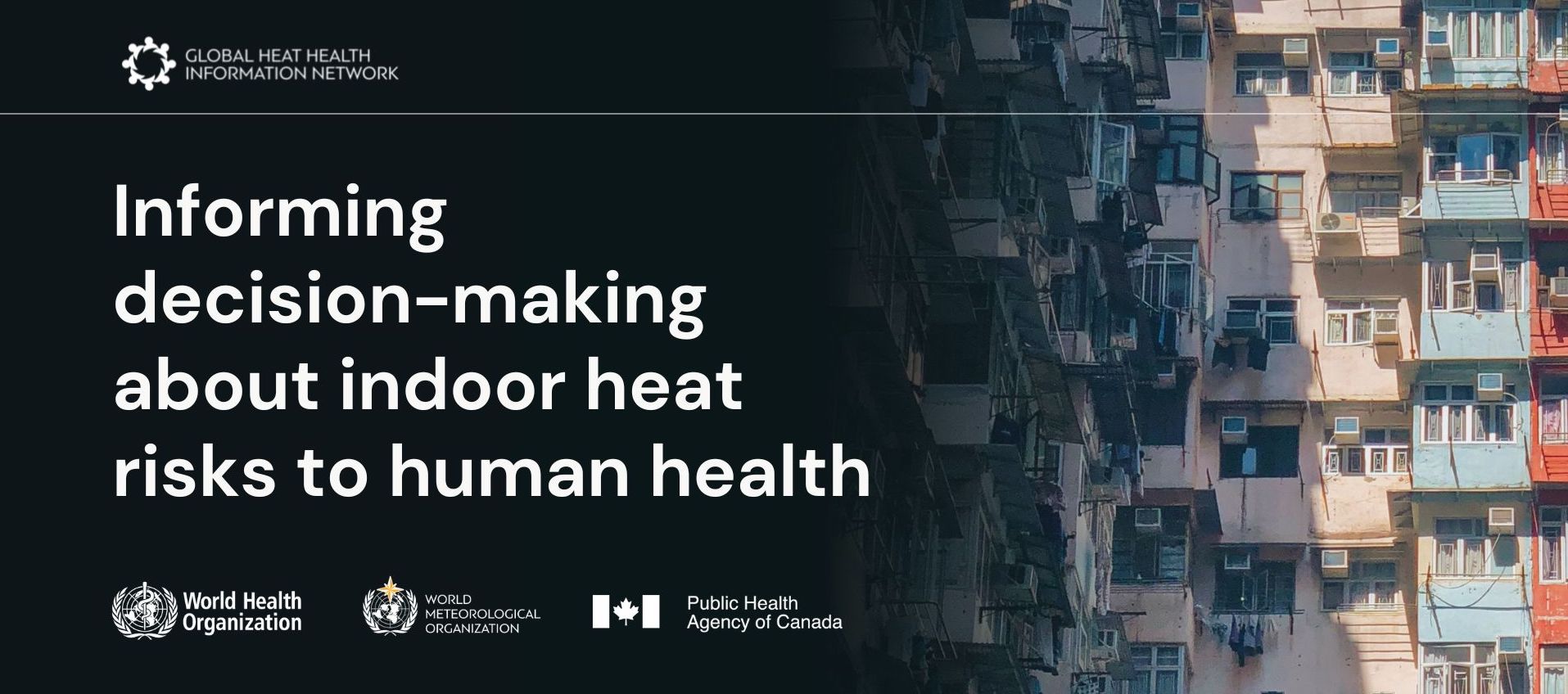New project to support decision-making to protect people from indoor heat health risks
Published: September 26, 2022
A new project will synthesize evidence and support decision-making to protect people from overheating in indoor environments.
The project – Informing decision-making about indoor heat risks to human health – is a collaboration of the World Health Organization (WHO) Department of Environment, Climate Change and Health (ECH), Health Canada, the World Meteorological Organization (WMO), and a broad range of participating academic experts and public health agencies via the Global Heat Health Information Network (GHHIN).
The Problem
As a result of climate change, more people across all world regions are being faced with serious health risks from exposure to high temperatures inside their own homes, or in public or privately managed facilities, such as schools, health facilities, prisons or care homes. Unfortunately, the local and global scale of this problem is poorly understood, and the lack of strong epidemiological evidence of morbidity and mortality observed at diverse indoor temperature thresholds is limiting strong preventive action.
The Project
This project will help to identify, synthesize and discuss key issues to clarify options and information for public health protection from indoor overheating. The findings from this project on health impacts of indoor overheating can provide decision-makers additional evidence and guidance to inform multi-sectoral policies such as: behavioural and household cooling approaches, energy efficiency, housing standards, fuel poverty, disaster risk reduction, and climate change strategies.
The project will respond to 4 key problems:
- Lack of epidemiological synthesis and awareness on indoor thermal comfort and safety conditions;
- Indoor heat conditions limit the effectiveness of other heat protection measures;
- Lack of guidance, good practice, and regulation on prevention of indoor overheating;
- Inequitable cooling access and overuse of air conditioning leading to maladaptation and inequity.
Learn more
